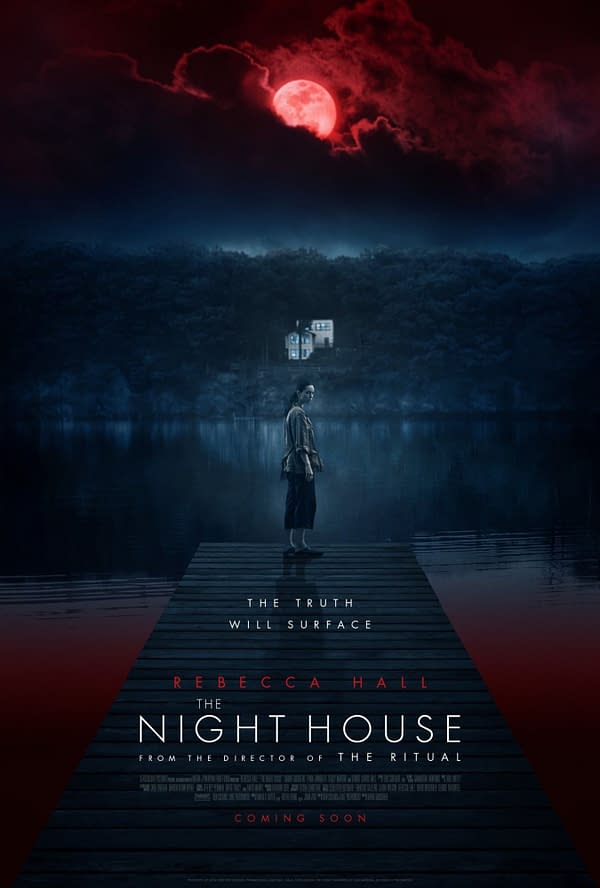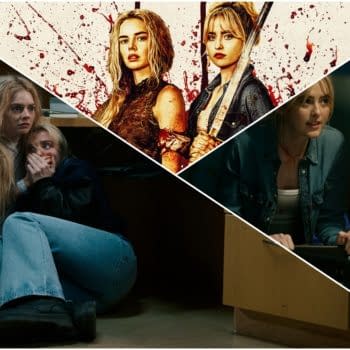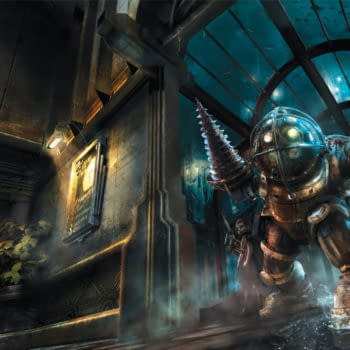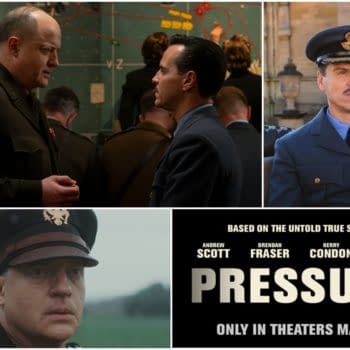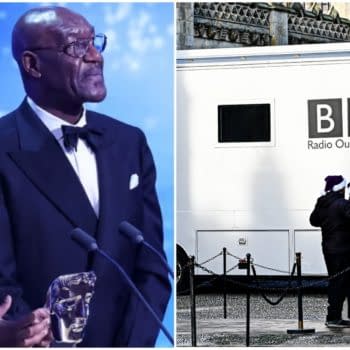Posted in: Kaitlyn Booth, Movies, Searchlight | Tagged: horror, movies, searchlight, the night house
The Night House Review: Excellent, But Doesn't Stick The Landing
The Night House is a solid piece of horror featuring plenty of atmosphere and a compelling lead performance, but it doesn't quite stick the landing when it comes to its ending.
Director: David Bruckner
Summary: A widow begins to uncover her recently deceased husband's disturbing secrets.
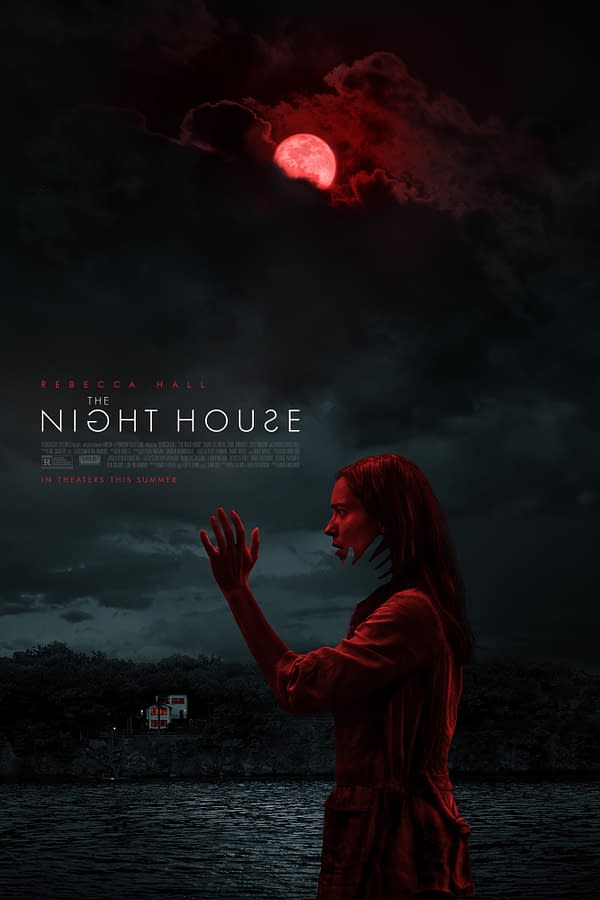
While jump scares and gore are a lot of fun for fans of horror, where the genre truly elevates itself is when the atmosphere makes the audience feel like they just went through a physical event. Your shoulders hurt because you've been so tense for hours. Your stomach might be in knots because you're still waiting for the other shoe to drop even when the credits roll. This sort of feeling comes from atmosphere more than even scares and is something that indie horror tends to succeed at. Indie horror can't afford the expensive CGI to create a monster, and sometimes they can't even afford decent gore effects. Indie horror needs to make you feel a lot with very little while also being masterfully directed, so when a set-piece does happen, we can't tell that it's being held together with duct tape if the camera was pointed slightly to the left. The Night House is much hanging out in that indie horror sector; this isn't a movie about monsters or blood or gore; it's about the oppressive loneliness of being alone with your own trauma, mental illness, and grief. Or some combination of those three items, but we'll get to that later.
Rebecca Hall is largely on her own in a massive house as Beth tries to cope with the sudden suicide of her husband. She is beginning to have vivid dreams, she's beginning to sleepwalk and wake up in strange places, and she's beginning to find hints that her husband was not the man she thought he was. Or maybe she isn't. The Night House is playing fast and loose with the concept of reality and what is real and what isn't. There is no indication when we are in dream sequences; they are shot exactly like sequences when Beth is awake, so you don't know it's a dream until she wakes up. It's a subtle thing that makes the audience question every moment they see on screen the same way Beth is beginning to question everything in her life. At one point, she even admits to a friend that she saw something, but she doesn't know if it was real because she cannot trust her own mind.
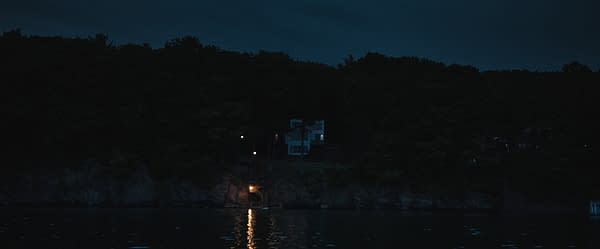
There is no greater fear than the lingering sense of "I'm not alone in my house." It's the oldest fear in the book, but that's because it's a paranoia that every single human can understand. We have all been lying down to sleep and heard something, and for half a second, we wonder, "did we lock the front door? Is someone in my house? Am I alone?" no matter how illogical that might be. The Night House leans into that by making Beth entirely isolated not only in her home but also by a lake with no close neighbors. The stairs creak, a door closes, and a shadow moves out of the corner of your eye. It's all so cliche, but the direction from David Bruckner is the thing that sets it apart. He uses the angles of the house to create things that look a little off but could be easily dismissed, thus adding to the growing tension of the film. We've all seen a shadow move out of the corner of our eye, but Bruckner makes the shadow move and look right at us, but vanish as soon as the perfect angle makes it change. It's remarkably effective and really adds to the tension of the film.
The tension builds as Beth learns more and more things, but the sense of "are we awake, is this real" is building as well, and it all comes to a head in the third act. It's a pretty wild third act with some really interesting implications, but the implications are the problem. The Night House is using the concept of horror as a metaphor for something, but by the time the credits roll, it's unclear what that metaphor is. We don't really get any sense of closure. That moment where Beth says, "I don't know if what I saw is real," is never confirmed. We don't know if the explanation we are given is actually what is going on or if this is all in Beth's head. There are hints in both directions, and the movie never bothers to explain itself. Is the haunting a manifestation of Beth's grief for the sudden loss of her husband and not real? Is this a metaphor for mental illness and how it can haunt every aspect of your life even if you don't know it's happening? Is the lingering trauma of something that happened to Beth before the events of the movie? Is it a literal haunting with a demon or ghost of some sort? Your answer is as good as anyone's because the movie utterly cops out. It has a really awesome final shot that sticks with you, but it sticks with you in the sense that you don't know what happened.
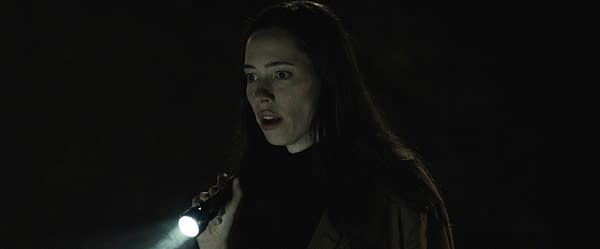
Perhaps there wasn't supposed to be closure here, and that was the point. You don't always get closer when it comes to loss or grief, sometimes you can't get better from that mental illness, and perhaps that trauma is going to follow you for the rest of your life. A bleak ending, for sure, but it would have been a definitive one. A few more pieces of dialog or another scene could have really fixed this, but the ending leaves so much to be desired. It makes you wonder if it's supposed to be incredibly broad, and that's the point or if it aimed for something and missed entirely. Once again, it's too unclear to even make the call if this is a script issue. However, the ending isn't satisfying in any way, and even in a horror movie, there should be some sort of satisfaction, even if it's a bleak ending.
The Night House does almost everything right and has a truly great central performance but falls into the trap of being too broad with its ending. It's fine if you want to leave your ending open-ended with possibilities, but there seem to be too many unanswered questions for it to feel like an ending. That final shot is so good, but it's a shot that needed something more before it. Horror fans will find quite a lot to love in 2/3's of this movie, and perhaps everything else is enough to make up for the lackluster ending for some.
